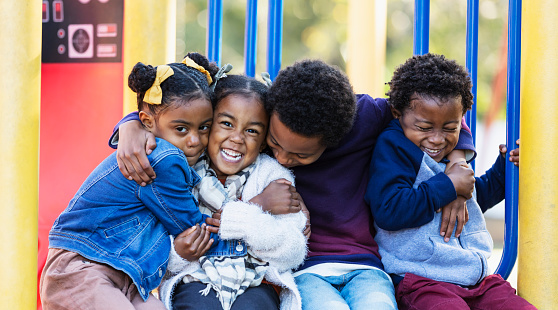The past few years as a result of the pandemic have not been ideal for helping children to keep, make and foster friendships. Due to lockdowns and isolation, many childhood friendships suffered. As children are returning to in-person interactions, many may need help to actually make friends. According to the experts, here’s how to help your kids make friends this school year.

“There was nothing we could do about social setbacks,” said Anya Kamenetz, an education reporter and author of the upcoming book The Stolen Year: How COVID Changed Children’s Lives, and Where We Go Now in an interview with CNN. “Now there is some social catching up to do.”
And of course, we all know that friendships are an essential part of proper childhood development.
“For young people, a lot of how they are building their identity is through their peers,” said Karen VanAusdal, senior director of practice at CASEL, the Collaborative for Academic, Social and Emotional Learning in the same interview. “Friendships are the places where we get to try out new ideas, practice new social skills, branch out of our comfort zone, and share our feelings. As important as family bonds are, friends provide a critical social outlet outside the family, where children can have more space to figure out who they are.”

So, just what can parents do to help their kids make friends this school year? Well, take a look below at several ways to pitch in.
Introductions make a difference.
“Kids need to practice small things, like introducing themselves. Things as simple as “Hello, my name is … What is your name? Do you want to play with me?” VanAusdal said. “Help them with conversation starters, how to talk about apologizing and sharing, and have them practice with their family first.”
Ask questions about their friends.
“I think parents can help their kids develop deeper friendships by asking their kids questions about their friends,” said Maurice J. Elias, professor of psychology at Rutgers University in New Jersey and coauthor of Emotionally Intelligent Parenting. “One of the reasons friendships aren’t as deep, is because a lot of times kids are just focused on themselves.”
Model the importance of your own friendships.
According to VanAusdal, making sure that your kids see how you value your friendships, teaches them to value their own.
“Share examples of how friendship is important for you, so young people begin to understand the value of maintaining friendships over time.”

Inclusion is key. Be open to all types of friends.
Per Kamenetz, inclusivity and being proactive about welcoming different children as friends is a way to broaden the friend circle.
“We can all think of ways of how to be better allies and work on being more inclusive of kids in our class who are neurodivergent, or who come from different races or religions (than our family).”
Take your time.
“My younger daughter was expressing angst about birthday parties,” Kamentez said. “But I knew it was not helpful to just say to her ‘Hey, why don’t you want to go to a birthday party! They are fun,’ and instead tell her that we just have to go for five minutes, and then we can leave.”
Yes, it is important to help kids make friends; however, there is no rush. Help them to learn how to take their time in creating friendships. They are building something that will last for a while.
Do you have any tips for parents to help kids make friends this school year? Share your tips. We want to hear from you!







